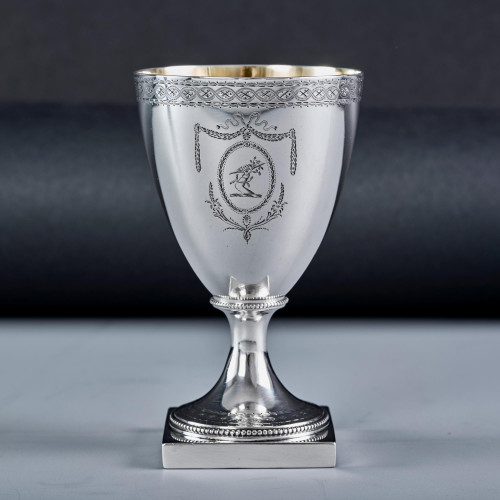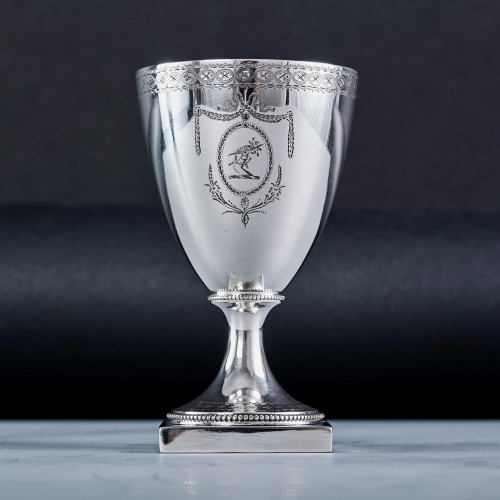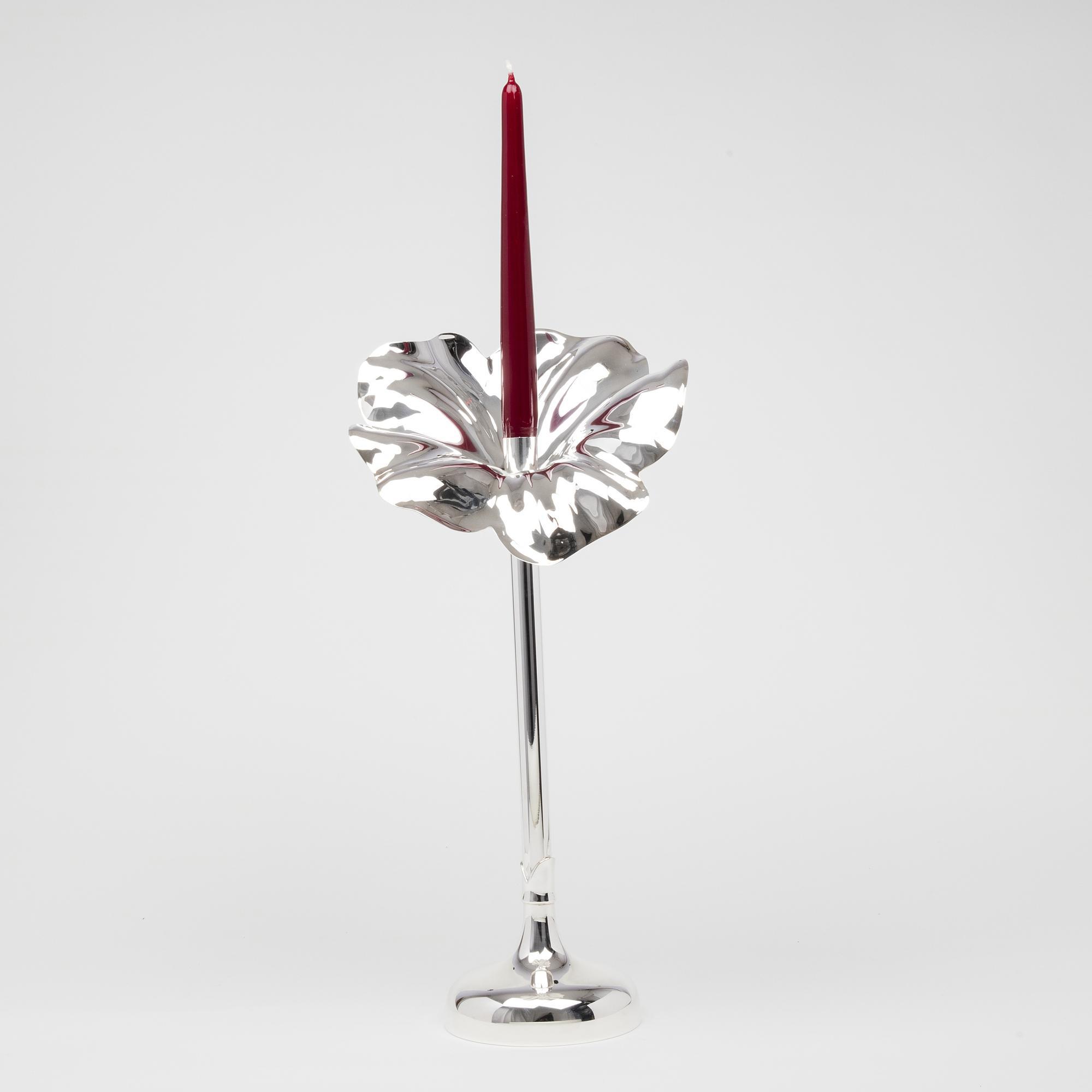- Home
- Find Popular Styles & Eras
- Neoclassical
- Small neoclassical style silver trophy cup & cover
Small neoclassical style silver trophy cup & cover
Small neoclassical style silver trophy cup & cover
6479
Antique, Edwardian period silver trophy cup and cover in the neoclassical style, that was popular in the late 1700s. All our trophies can be supplied with a bespoke wooden plinth and silver band or plaque for recording names of winners. For further information or a quotation, please get in touch.
The word trophy, coined in English in 1550, was derived from the French trophée in 1513 - a prize of war. In ancient Greece, trophies were made on the battlefields while the Romans built magnificent trophies in Rome, including columns and arches and huge stone memorials.
While trophies have marked victories since ancient times, today a trophy is a tangible, durable reminder of a specific achievement, and serves as recognition or evidence of merit. Trophies in the form of silver chalices, or two-handled cups, are popular items presented to winners of sporting events and include some of the world's most famous trophy cups: The FA Cup, Wimbledon Trophy (two-handled cup), Webb Ellis Cup, Ryder Cup and the British Grand Prix Trophy.
Elkington is one of the most important names in English silver and certainly the most important in silver plate. Established by George Richards Elkington in 1836, and joined by other Elkington family, the firm revolutionised the silver industry when George Richards Elkington discovered, perfected and patented an electroplating technique to deposit a layer of silver and fuse it onto the surface of a base metal. It was extremely successful and gave birth to a large new market of silver-plated tableware. The firm employed some of the best British and European designers of the day and produced decorative silver in a wide variety of styles.
Dimensions:
1909
London
Excellent
Thank you for your enquiry.
We will get back to you soon.
Please create wishlist to add this item to
YOU MIGHT ALSO LIKE


























